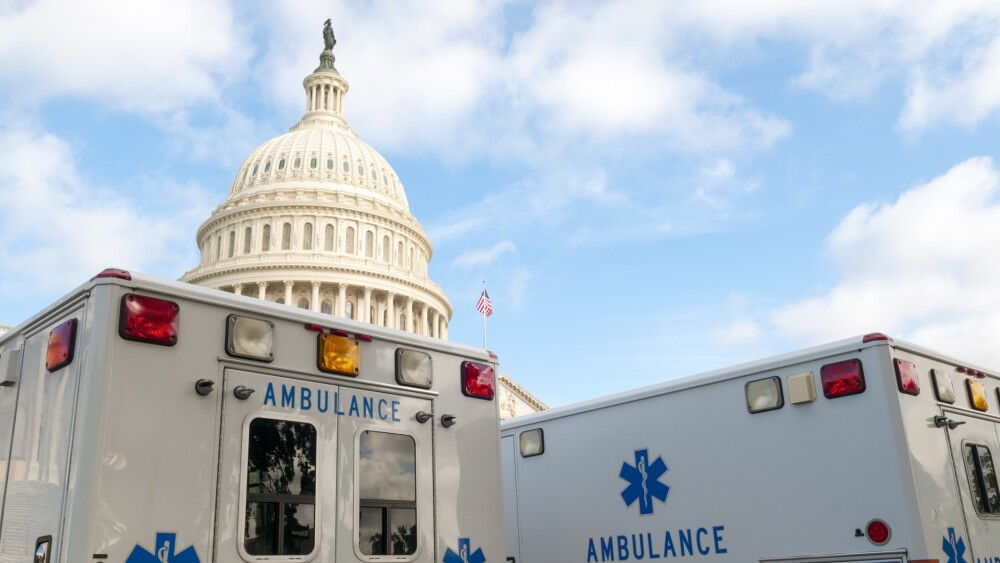Why would the House Ways and Means Committee, best known for authoring the tax code in Social Security oversight, hold a , to discuss emergency healthcare access? Cost, insurance, regulation and care centers, to start. Here’s what was discussed.
Access
Committee Chairman Jason Smith (R-Mo.) started out discussing long wait times and lacking access in rural America. Dr. Michael Burgess (who recently had ), noted at the hearing that 82% of U.S. counties have at least one “ambulance desert,” with Texas having the worst ratio at 95%. In these areas, patients live a half hour away from the nearest ambulance.
Urban hospitals face different problems affecting patient care. since 2020, according to Smith, as emergency room staffs have been cut to make up for lowered insurance company reimbursements.
Reimbursement
Robert Morris, CEO of Complete Care, testified that some companies provide uncompensated care under certain conditions, but for non-Medicare providers, patients are forced with the option to pay cash. Yet, “you can’t have those conversations in an emergency situation,” he acknowledged.
Morris, who also serves as president of the , said that the centers (FECs) present an alternative to hospitals that improve access and hold down costs. Despite having the same capabilities as a hospital ED, FECs do not currently qualify for Medicare and Medicaid reimbursement, which has inhibited their contribution. Patient Lauren Miller said the FECs have great potential to improve rural care, saving Medicare money with higher discharge rates than hospitals.
Surprise billing legislation
Dr. Edward Racht, chief medical officer at Global Medical Response (GMR), advocated for policies like the to protect patients from surprise medical bills and ensure accessible care. “We don’t know if you can pay or not. We don’t know if you have insurance or not. We may not even be able to talk to you,” he said. “But we do the same thing to stabilize your anatomy and physiology and get you to the point where you maximize your chance of survival.”
Racht reminded committee members that first responders are in a state of 24/7 readiness, but they need the workforce and infrastructure resources under a sustainable funding model. “You’ve seen the aircraft, you’ve seen the ambulances. These are mobile ICUs today with the technology to be able to stabilize and treat patients in the out of hospital setting,” he testified.
Rep. Ron Estes (R-Kan.) noted a study that found patients transported by air ambulance are less likely to die than those taken by ground. But they remain at financial risk, . He has cosponsored the would use data collected from the No Surprises Act to update Medicare reimbursement rates for emergency or services.
Truly remote areas of the country rely on air ambulance services, but according to Racht, they, too face challenges not just to maintaining readiness but to what he called a logistics problem. “Nowhere else in medicine do we have this strange problem” of needing to stabilize a patient but also account for distance “in relation to definitive care.” Technology partially makes up for the gap, but as hospitals close facing their own fiscal challenges there’s nowhere to land, and without steady funding GMR would have to move or close bases.
Care in the community
Attendees also testified about the impact of community risk reduction and community paramedicine initiatives.
Chloe Burke, representing the American Heart Association, called for action on the , which aims at more educational resources on cardiomyopathy, guidelines for AED placement in schools, and CPR training to save lives.
Medstar Mobile Healthcare Chief Transformation Officer Matt Zavadsky, stated MedStar’s patient-centric “high utilizer group” program reduced 911 calls by 51.2% and saved $20 million in the decade since its launch in Texas.












